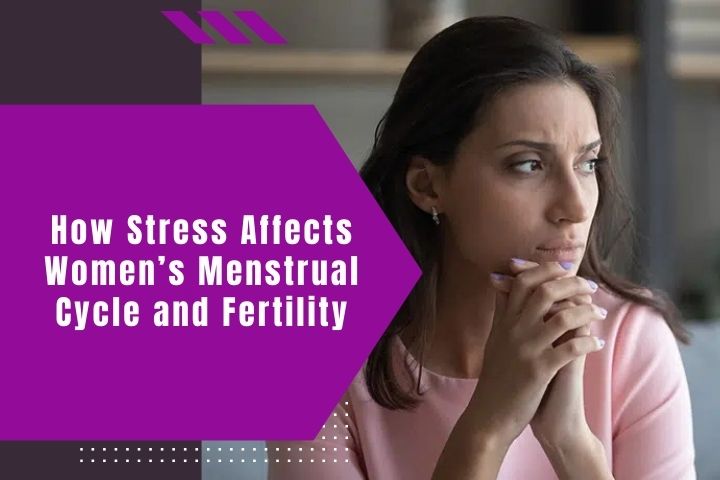
In today’s fast-paced world, stress has become a common part of daily life. However, chronic or high levels of stress can significantly impact women’s reproductive health. Stress not only disrupts the menstrual cycle but also affects fertility, making it harder for women to conceive. Understanding the link between stress, the menstrual cycle, and fertility is crucial for overall well-being.
The Connection Between Stress and Hormones
How Stress Alters Hormonal Balance
When the body is under stress, it produces higher levels of cortisol, often called the “stress hormone.” Excess cortisol can interfere with the balance of reproductive hormones such as estrogen and progesterone, leading to irregular cycles. This hormonal disruption can prevent the ovaries from releasing eggs regularly, affecting fertility.
Impact on the Hypothalamus
The hypothalamus, a small part of the brain that regulates the menstrual cycle, is particularly sensitive to stress. When under pressure, the hypothalamus may delay or suppress signals to the ovaries, causing delayed ovulation or missed periods. This makes it difficult for women to track their fertility accurately.
Effects of Stress on the Menstrual Cycle
Irregular or Missed Periods
One of the most noticeable effects of stress is irregular periods. Women experiencing chronic stress may have shorter, longer, or completely absent menstrual cycles. This unpredictability creates challenges for those trying to conceive or simply maintain reproductive health.
Increased Menstrual Discomfort
Stress can also worsen premenstrual syndrome (PMS) symptoms, including cramps, bloating, and mood swings. In some cases, periods may become heavier or lighter than usual, making cycles even more difficult to manage.
How Stress Affects Fertility
Disrupted Ovulation
Stress-induced hormonal imbalances can delay or prevent ovulation. Without regular ovulation, the chances of conception naturally decrease. Even women with otherwise healthy reproductive systems may find it difficult to conceive during periods of high stress.
Impact on Implantation and Pregnancy
Stress can also affect the uterine environment, making implantation of the fertilized egg more difficult. Additionally, high stress levels during pregnancy may increase the risk of complications, underscoring the importance of stress management even after conception.
Managing Stress for Better Reproductive Health
Lifestyle and Relaxation Techniques
Adopting stress-relieving practices such as yoga, meditation, deep breathing, and regular physical activity can help balance hormones and regulate menstrual cycles. Adequate sleep and a healthy diet also play a crucial role in maintaining reproductive health.
Seeking Professional Help
If stress continues to cause menstrual irregularities or fertility issues, it’s important to consult a specialist. A gynecologist can provide guidance, treatment, and support tailored to individual needs, ensuring better chances of conception and overall reproductive well-being.
Conclusion: Stress has a profound impact on women’s menstrual cycles and fertility by disrupting hormonal balance, delaying ovulation, and creating challenges in conception. Managing stress through lifestyle changes and medical support is key to protecting reproductive health. Dr. Preeti Tandon provides the best services regarding this, offering expert care, advanced treatments, and compassionate guidance for women facing stress-related menstrual and fertility issues.



